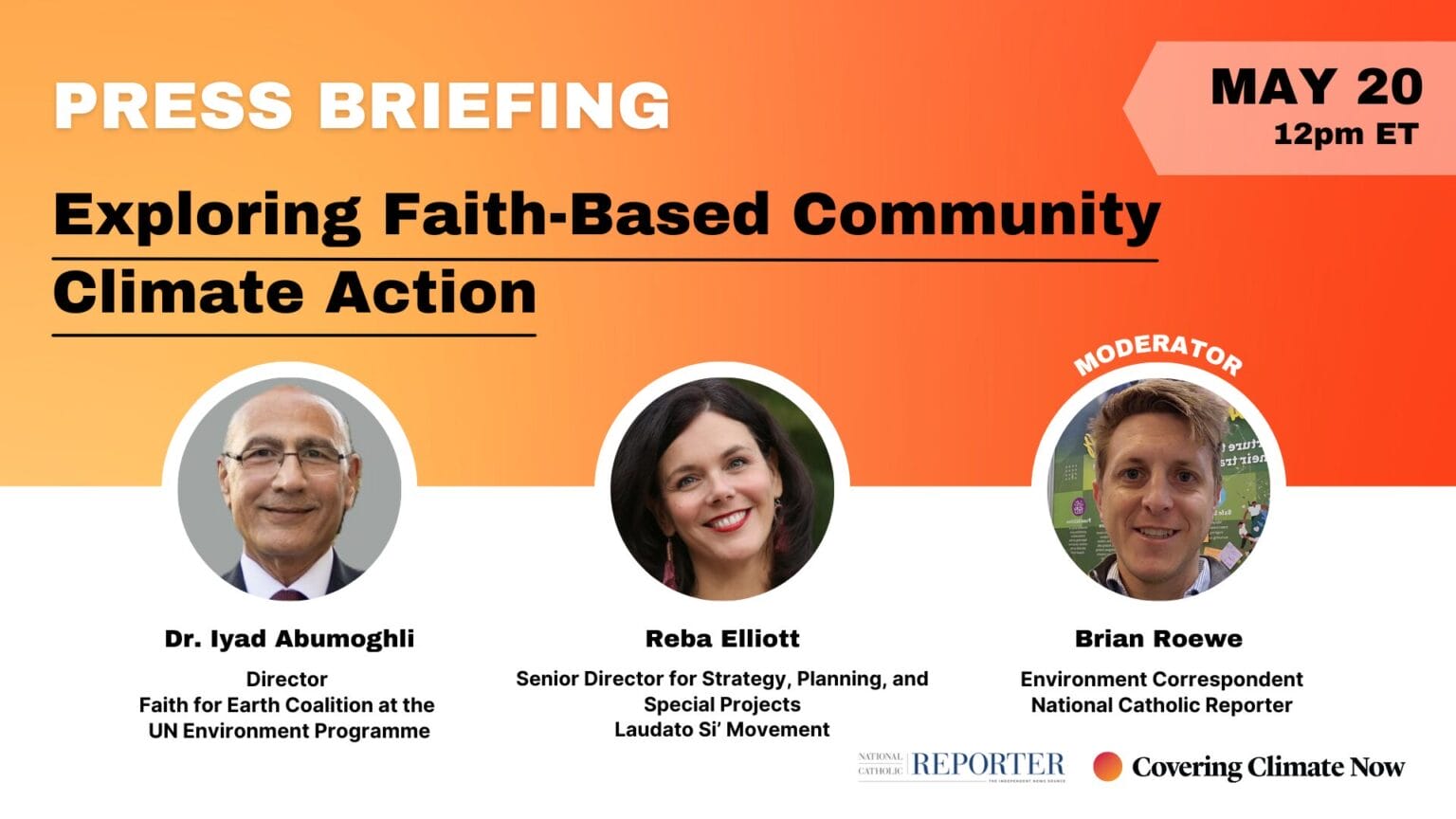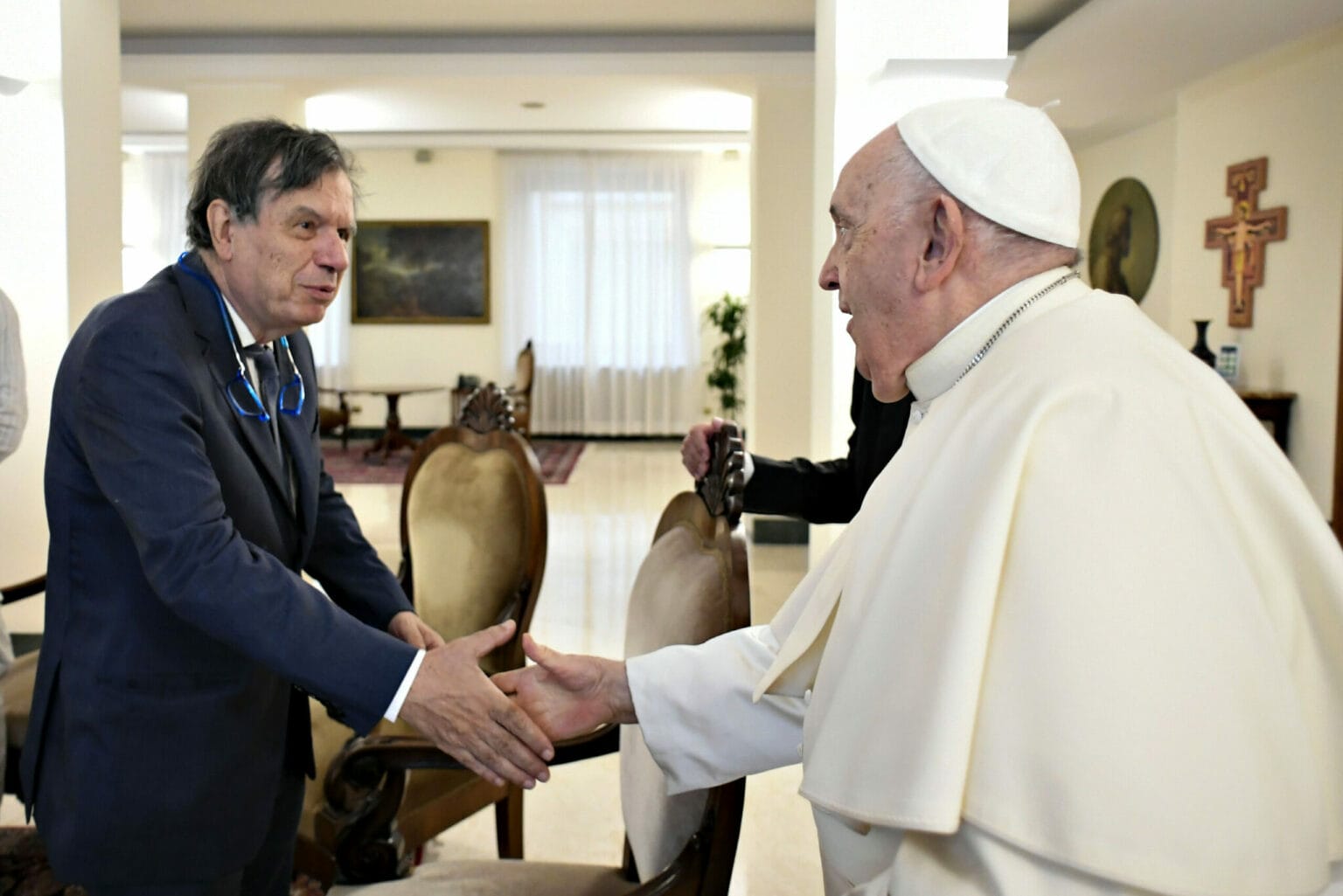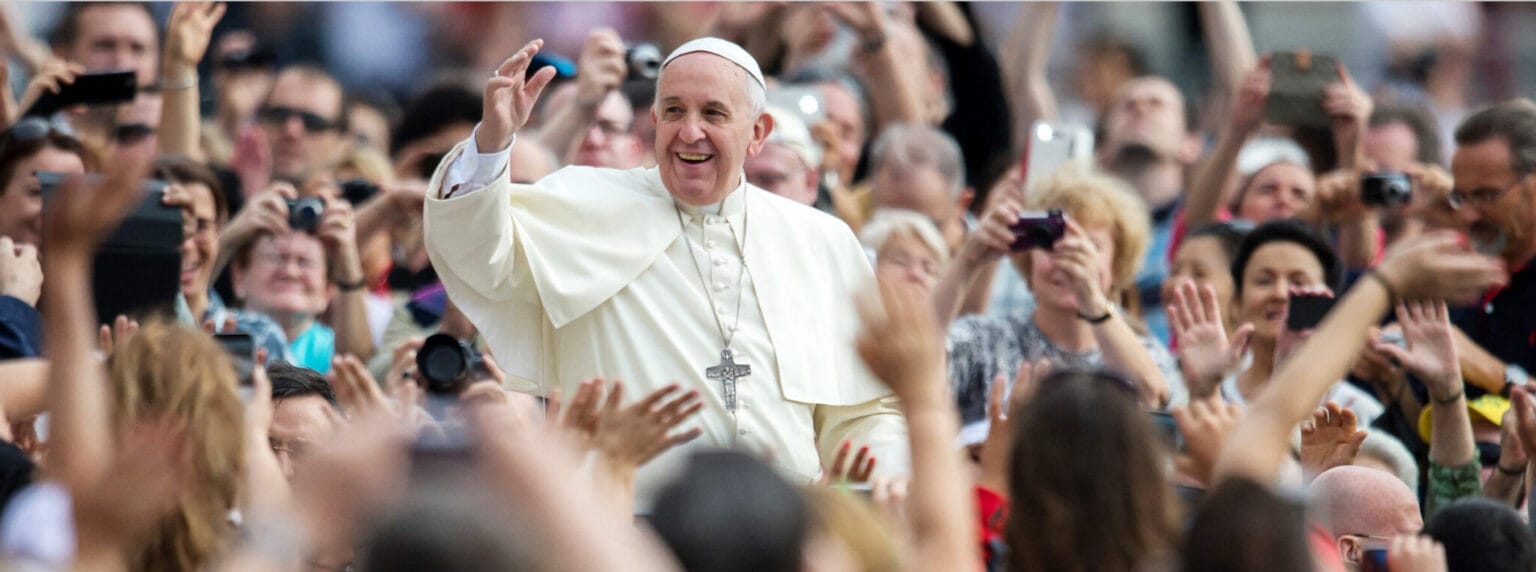Sign up for Power & Progress.
In Power & Progress, we analyze how elected leaders are impacting global climate action, and the economic and societal power dynamics at play. How does power impede and propel progress? How do movements for progress build and use power? Vea la versión en español de “Poder y Progreso.”
When Climate Action Meets Christian Faith
Pope Francis, who died last month, was eulogized by many around the world as the “climate pope.” His most influential call to action was the Laudato Si’, the papal letter he wrote in 2015, just months before the COP21 climate talks that resulted in the Paris Agreement. Francis’s encyclical letter “provided the church, and the world, a moral and ethical lens for climate change, biodiversity loss, pollution and other environmental challenges facing the planet and its people,” writes Brian Roewe in National Catholic Reporter’s EarthBeat.
Approximately 80–85% of people worldwide belong to a religious community, according to the most recent studies and polling, and among them, Christianity is the most populous religion with an estimated 2.6 billion followers. Pope Francis may have been a climate trailblazer, but he’s far from alone. Leaders across many faiths joined him in advocating for climate action to be seen as part of a religious mandate to protect a natural world crafted by the creator, and to minister to marginalized populations that are disproportionately affected by climate change.
For followers, regardless of partisan affiliation or political ideology, faith communities are a place where conversations about climate change can cross boundaries. However, researchers have found that religious leaders, “rarely mention it from the pulpit.” In a recent study that surveyed 1,600 mostly Christian leaders, nearly 90% said that they believe in human-caused climate change, but half of them said they “never discussed it in their sermons or teachings, and 25% only mentioned it once or twice.”
The researchers also surveyed nearly 1,000 Christian churchgoers. When asked what percentage of US religious leaders they thought believed in human-caused climate change, churchgoers estimated only about half, said study author Stylianos Syropoulos.
When researchers led with the 90% figure, telling a different group of churchgoers the true percentage first, the churchgoers were more likely to agree that “taking action to reduce climate change” was consistent with their church’s values. “Churchgoers who received this information were also more likely to feel it would be inconsistent with their church’s values to vote for a political candidate who opposes actions that could slow climate change,” writes Syropoulos. “These findings highlight that religious leaders have a unique power to influence climate action — but only if they let their beliefs be known.”
There are too many faith-based communities involved in climate action to list here, but it’s an area that is rich for journalists interested in exploring the intersection of faith and climate action in their communities. “Half of all schools and 40% of health facilities in some countries are owned or operated by faith groups. In addition, faith-related institutions own almost 8% of the total habitable land surface – and constitute the world’s third largest group of financial investors,” reports Nina Lakhani in The Guardian.
Story Ideas
- Write about the 10th anniversary of Laudato Si’ (May 24) and the growing number of initiatives — including ecological stewardship and sustainability projects, environmental education curricula, and climate justice work — undertaken by dioceses, parishes, schools, universities, hospitals, health care centers, and other Catholic-affiliated institutions. Resources:
- The Laudato Si’ Action Platform offers details about the 4.9K institutions enrolled in the program and the 5.1K families/individuals enrolled as community ambassadors around the world. The 2024 Annual Report (PDF)
- The Laudato Si’ Research Institute is based at Campion Hall at the University of Oxford. Their work is based on the integral ecology paradigm that incorporates the wisdom of indigenous traditions and marginalized voices wherever possible.
- Stories we like: National Catholic Reporter’s EarthBeat archive of Laudato Si’ Action Platform news articles.
- Holding fossil fuel financiers accountable. The World Council of Churches, a fellowship of churches in 120 countries representing 580 million Christians, has been focused on climate justice. A new WCC publication, “Hope for Children Through Climate Justice,” offers legal strategies for churches to hold financiers accountable. “Our faith calls us to speak truth to power and to seize every available legal measure to protect our planet and its inhabitants.”
- Report on faith-based divesting. Five years ago, the Vatican issued a recommendation promoting ethical, responsible investing practices. Hundreds of Catholic organizations “have pledged to sever financial ties with major fossil fuel companies,” reports Liz Bulnes at Deutsche Welle. But the exact number is hard to pin down because many prefer to keep investment decisions private. What’s happening in your community?
- Are religious leaders talking about climate change with their congregations? Ask them why or why not. We’ve learned from our 89 Percent Project that talking about pro-climate action “could unlock a social tipping point and push leaders into the climate action so urgently needed.” Resources:
- Dr. Katharine Hayhoe, a prominent climate scientist, actively engages with religious groups to promote climate action.
Stories We Like
- “‘We feel called to care for that environment’: Pennsylvania church goes solar” by YCC Team, Yale Climate Connections
- “The Catholic cartographer who wants to help the church fight climate change” by Whitney Bauck, MIT Technology Review
- “With ‘Green Islam,’ climate action is a religious duty – and an act of community” by Sara Miller Llana and Lindsey McGinnis, Christian Science Monitor
Support Covering Climate Now
We’re working to help journalists worldwide improve and expand their climate coverage. Meet our staff and learn more about CCNow.



